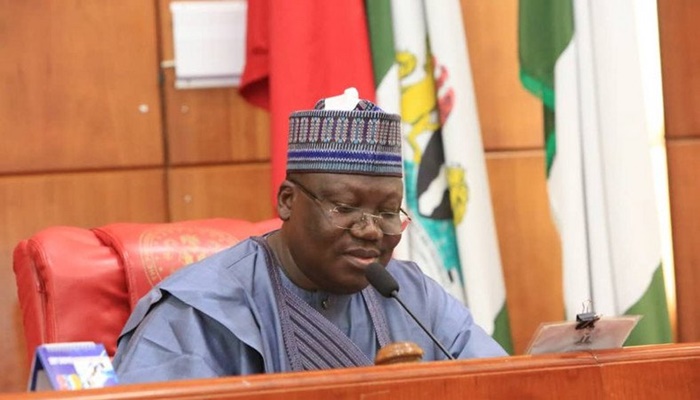Senate to invite petroleum ministers, GMD NNPC, others over state of existing refineries

The Senate on Tuesday resolved to invite the Minister (and Minister of State) for Petroleum Resources and Group Managing Director of the Nigeria National Petroleum Corporation (NNPC), Mele Kolo Kyari, over the status of refineries in the country.
The Senate mandated its Petroleum Committee (Downstream and Upstream) when constituted, to invite the minister and GMD, NNPC to brief it on the status of existing refineries, including the status of newly licensed modular refineries in the country.
It also invited the leadership of the Central Bank of Nigeria and other relevant stakeholders to brief the committees on the status of fuel subsidy.
President Muhammadu Buhari is yet assign portfolios to his recently nominated ministers who are yet to be approved by the Senate.
The Senate resolution was sequel to deliberation on a motion on “Existing Petroleum Subsidy: Ensuring Self -Sufficiency in Domestic Refining of Petroleum Products,” sponsored by Rose Oko and 42 other senators.
The invitation comes months after Nigeria’s former oil minister, Ibe Kachikwu, said refineries will be fixed in 2020. He had also said Nigeria’s refinery capacity will reach expected 1.1 million barrels per day in 2020.
In March, NNPC’s spokesperson, Ndu Ughamadu said the corporation’s refineries rehabilitation programme will commence with the 210,000 barrels per day capacity Port Harcourt Refinery complex – after several proposals by the corporation to boost the refining capacities of the four local refineries in Port Harcourt, Warri and Kaduna failed to materialise.
Only recently, the federal government sealed a $4.5 billion (N700 billion) Memorandum of Understanding (MOU) with a consortium of local and foreign investors called Petroleum Refining and Strategic Reserve Limited, to construct six new modular refineries in the country.
These refineries would bring the number of new refineries to be built by the federal government in partnership with various groups to nine; with the Nigerian National Petroleum Corporation (NNPC) and another consortium of investors already committed to the construction of three refineries in Kogi, Bayelsa and Lagos states.
Leading the debate, Ms Oko noted that although Nigeria produces 1.7m barrels of crude per day, its moribund refineries have very little refining capacity and imports roughly 90 per cent of its fuel. This, she said, negates much of the benefits accruing to oil-producing nations from high crude prices.
The Cross River North senator explained that the NNPC has four major refineries with a combined installed capacity of 445,000 barrels per day and despite the huge resources expended on Turn Around Maintenance, none of the four refineries currently works up to 50 per cent of their capacity according to official figures from the NNPC.
According to her, the overriding objective of modular refineries is to overcome the huge capital requirement that impedes the establishment and maintenance of large-scale refineries thereby ensuring self-sufficiency in the production and supply of petroleum products.
“Despite the dire need to exit petroleum importation and boost local refining capacity to reduce the current 91 per cent exposure to petrol importation, there is neither a comprehensive plan provide technical and financial aid for refinery license holders to ensure refineries under construction become operational.
“An open data principle would undoubtedly enhance transparency and accountability and ultimately build trust between citizens and government,” she said.
The Senate President, Ahmad Lawan, in his remarks, said that the motion was designed to ensure that the 43 licensed modular refineries become operational.
Stressing the need to support the refineries to become active and functional, he assured that the Senate would make it a point of duty to ensure the establishment of the modular refineries.
Mr Lawan also said the Petroleum Industry Bill was also key to the optimal utilisation of the refineries and the emergence of the modular refineries.
The Senate directed the committees to report back in eight weeks.
-Premium Times






